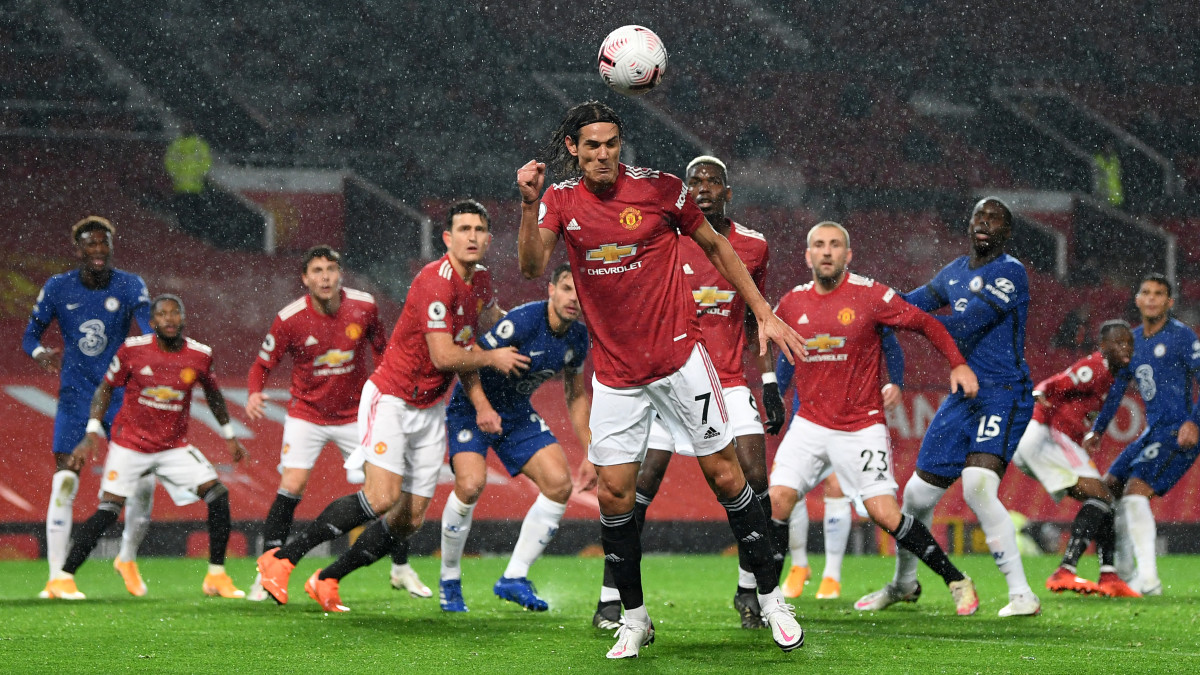Manchester United–Chelsea Draw Shows How Far Both Sides Still Have to Go
A desperate game, just the second goalless draw of the season, but there was a sense that both Ole Gunnar Solskjaer and Frank Lampard would be relatively satisfied, may even feel they had made a point. Manchester United had let in 12 goals in its first five league games and Chelsea nine, and those statistics, more than anything else, governed a desperately unambitious affair at Old Trafford. Chelsea’s last visit in the league, on the opening day of last season, had ended in a 4–0 defeat. There was never any prospect of a repeat.
After the wildness of much of the first month of the season, this felt like a throwback to how games between the major powers used to be. It was tight, it was cagey, and it was more than a little dull. The problems both sides have had defensively were evident in the cautious opening to the game. Neither side pressed, neither side took risks, both teams appeared content with gentle probing. The first corner came in the 17th minute, the first shot in the 18th. The first shot that was remotely memorable didn’t arrive until the half-hour, and that came from Edouard Mendy, making his league debut in the Chelsea goal, as he dragged a pass to Reece James worryingly towards his right-hand post.
For an age, almost nothing happened, other than Harry Maguire and Fred hitting a number of extremely hopeful diagonals towards Daniel James. On a drier pitch, or against a back four, or against a side leaving space behind it, perhaps it would have worked, but Chelsea’s deep-lying back five dealt with the threat comfortably, safe in the knowledge that almost any ball played in behind it would skid into touch off an extremely wet pitch.

This was the fifth meeting of Lampard and Solskjaer as managers. Solskjaer had won the first three with a similar template, sitting deep and playing on the break. Lampard won the fourth, last season’s FA Cup semi-final, thanks largely to individual United errors. Here, Solskjaer set up with the same plan, but found himself facing a team playing in much the same way. Tactically, from Lampard’s point of view, it made sense, but it did little for the spectacle. It might have worked as well, had Harry Maguire been penalized, as he surely should have been, for wrapping an arm around Cesar Azpilicueta’s neck as they contested a corner five minutes before half-time.
Not until the 35th minute was there a chance worthy of the name, and it when it did arrive it was from a familiar source. Chelsea had been looking the better side when Bruno Fernandes dispossessed Jorginho and Juan Mata released Marcus Rashford, whose firm drive was saved by the outstretched right foot of Mendy. A chance in transition, perhaps, was enough to remind Chelsea of what had gone wrong last year and the flickerings of a contest were soon stamped out.
Solskjaer, seeking to avoid a fifth successive home league game without a win, turned to Edinson Cavani and Paul Pogba just before the hour and the Uruguayan almost had an instant impact, jabbing a first-time shot just wide of the near post. But although United had the better of the second half, that was a misleading moment of promise. Whether it was a lack of ambition, a lack of self-confidence or a lack of creativity, nothing continued to happen.
Both managers can perhaps claim their sides are still in transition, but this felt typical of their flaws. Solskjaer has proved repeatedly he is adept at setting up a side to sit deep and strike on the break, but has struggled to achieve the attacking coordination necessary to break down a massed defense.
Lampard’s side have consistently attacked brightly but have been desperately open at the back. Part of the problem has been in goal, and Mendy is a clear improvement in Kepa in the form he was in. He made his debut in Tuesday’s 0–0 against Sevilla, and ensured another clean sheet here with a superb late save from Rashford. With two 0–0s in a row, Lampard is perhaps beginning to show he can organize a team defensively, and that is a useful base; the next step is to blend that solidity with attacking purpose—and that is what marks out the best managers from the rest.
But while there are hints of progress, there must also be a realization of just how far both these sides still have to go.
